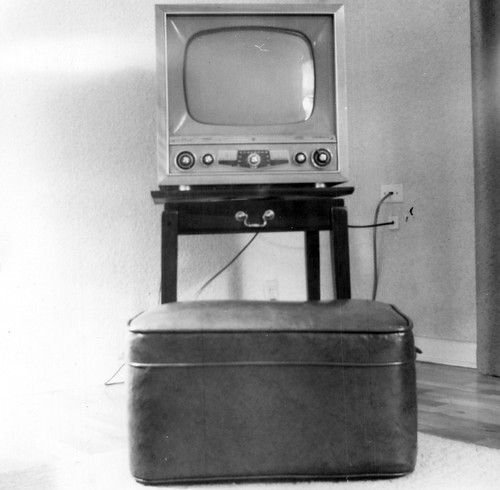Reality TV Cliches

Img Source: gbaku - Flickr
The popularity of reality television has not waned over the years, as many shows have expanded into new countries and have spawned countless spin-offs. Although reality is diverse in nature, however, there are a number of clichés that have spanned over numerous shows in different countries. These clichés can be found in almost every reality television show and are worth looking out for the next time you watch your favourite program.The Call Home
This occurs in reality shows of all types, although the situation is different each time. On talent shows like America's Got Talent, Britain's Got Talent or any of the Idol shows, producers will film a contestant phoning home after making it to the next round. These phone calls are often tear-filled, as the contestant cannot believe that he or she has made it.
In other shows, such as Big Brother and Survivor, contestants are sometimes granted a call home or a visitor as a reward. These calls are much different, however, since the contestant has not spoken with family members for weeks. These calls are also usually tear-filled, which adds to the drama that this cliché brings.
The Stereotype
We find stereotypes in all parts of society, but they are particularly strong in reality television. Almost every reality show will have a character that embraces certain stereotypes throughout the season. For example, almost every household on Big Brother has had an extremely flirty girl, a muscle-bound hunk, a homosexual, and a loud bigot. These people are chosen because they will either clash or will get along with one another. Either way, sparks fly when certain people are forced to live in the same house and producers know how to get the most out of these relationships.
On talent shows, there is usually a British judge that is more direct and critical than the others. Simon Cowell and Piers Morgan are good examples of these judges, as they give strong opinions on every contestant. This is often counter balanced by two less opinionated judges who look for the positives within the contestants.
The Surprise
When reality shows first became popular, producers could just let the shows run their course because the idea was new to the public. Today, however, the public is familiar with the concept and, therefore, new aspects have to be introduced every season. Contestants and viewers alike are forced to deal with rule changes every season, which make the show more difficult to win.
Examples include coaches being added to Big Brother, players being brought have after elimination, giving the judges of the Talent franchise the ability to save a competitor from being voted off and nights where multiple people are eliminated. These surprises are so common that they have become cliché, as the audience now expects something unexpected to occur.
The Vote Off
During nearly every season of a reality show, someone is voted off before anyone believes he or she should be. This has occurred in The X Factor, Big Brother, Britain’s Got Talent, America’s Got Talent, Britain’s Next Top Model, So You Think You Can Dance, and many other shows. There is always a vote that turns out in an unexpected fashion, which makes this type of scenario almost expected.

Img Source: anhonorablegerman - Flickr
It seems as though the producers of these shows have found a formula that works and will continue to include these clichés in their shows. The goal is to get the audience emotionally invested in the program and these elements go a long way in achieving this goal. If you see someone that you can relate to or would not to relate to on a show, you are more likely to tune in next week. As long as audiences tune in to hate the mean British judge, ogle the flirty vixen or find out what the great surprise will be this season, these shows will continue to increase in popularity and will stick with this winning formula.
Reality television has a number of clichés because producers have figured out what audiences want to see. These clichés get people interested in the characters and create an emotional response, which is what is needed for the show to remain popular.
This article is brought to you by Chat Mag Bingo, a top UK online bingo site.




